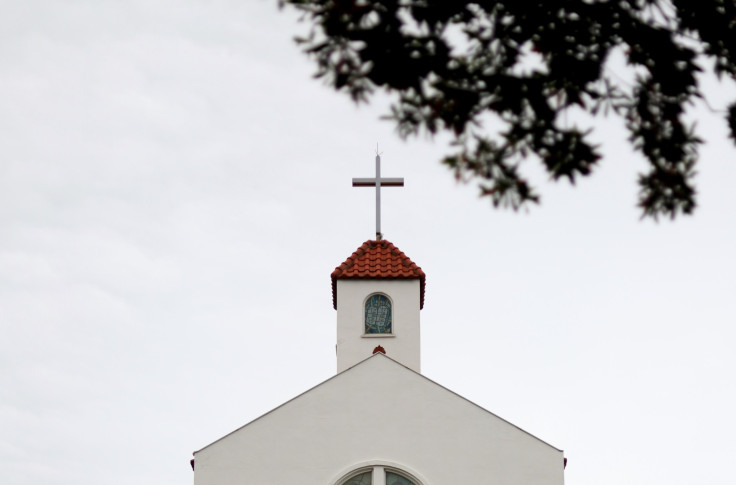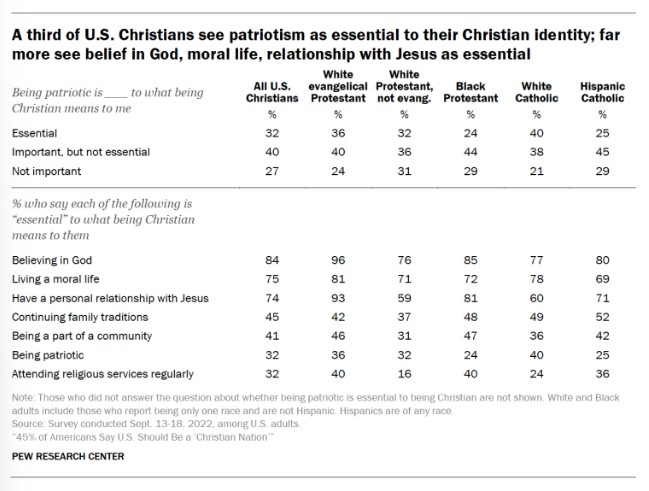
Religiously affiliated Latinos represent 17% of all Christians in the U.S. and a new survey by the Pew Research Center delved into what they believe is essential to their identity and their views about different aspects of society, politics among them.
The study focused one passage on Latino Catholics, who comprise 35% of the country's religious group. They were asked about whether being patriotic was essential to their Christianity. 25% said it was, while 45% said it was important but not essential. Only 29% considered it was not important.
Moreover, asked about other aspects of life that could be essential to their Christian life, the vast majority agreed with the premises of believing in god (80%) and living a moral life (69%), as well as having a personal relationship with Jesus (71%).
Attending religious services regularly (36%), being part of a community (42%) and continuing with family traditions (52%) ranked below in the list of priorities.

In another passage of the survey, respondents were consulted about whether they believed the country's two main political parties are friendly towards religion. 47% of Latino respondents said the Republican party is, in contrast with 21% who said the same thing about Democrats.
Moreover, 34% was neutral regarding the former and 56% with the latter, while only 16% said Republicans are unfriendly with religion, a figure that climbed slightly, to 21%, for Democrats.
The study also asked people if they believed "their side has been winning on political issues." Same as all other respondents, most Latino Catholics said no. Concretely, the amount who said they felt they were winning went from 54 to 64%. The figure, however, is less somber than that for all U.S. adults: 72% said they felt like they were losing and 24% they they were "winning."
When it comes to intermingling religion and government, more than three quarters of U.S. adults (77%) said that "churches and other houses of worship should not endorse candidates for political offices." "Two-thirds (67%) say that religious institutions should keep out of political matters rather than expressing their views on day-to-day social or political questions," the study added.
At a general level, the survey saw a big jump in the share of Americans who said they think the Supreme Court is friendly toward religion. "Today, roughly a third of U.S. adults (35%) say the court is friendly to religion, up sharply from 18% who said this in 2019, when the Center last asked this question."
The survey also found a "small but noticeable" increase in the amount of respondents who said religion is gaining influence in American life, as the figure went from 20 to 23%. However, as the amount of religiously affiliated individuals continues to climb as a share of the population, those who say that religion is losing influence still vastly exceed their counterparts (74% to 23%). "And those who say it has gotten harder to be a deeply religious person in the U.S. continue to outnumber those who say it has become easier (by a 47% to 13% margin)."
© 2025 Latin Times. All rights reserved. Do not reproduce without permission.





